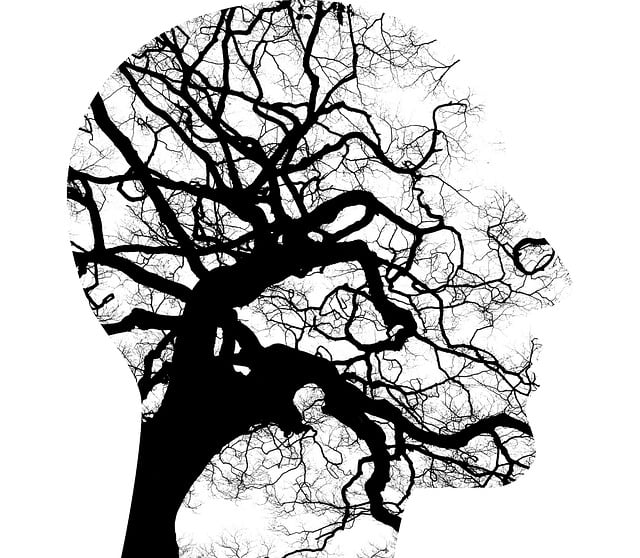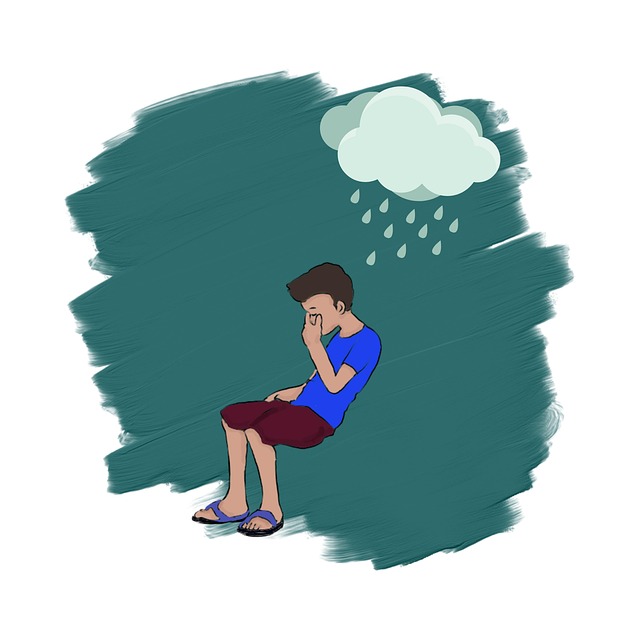Aurora Autism Spectrum Disorder (ASD) therapy emphasizes risk assessment and harm minimization planning for personalized, safe, and supportive environments. This involves analyzing physical spaces, interaction dynamics, and triggers to proactively mitigate risks. Strategies include structured routines, visual aids, clear communication, empathy building, mood management, and mental wellness promotion. Individualized approaches focus on clients' unique needs, strengths, and challenges, fostering resilience and adaptive behaviors. Regular updates to risk management incorporate innovative practices like compassion cultivation, ensuring dynamic support tailored to each client's evolving needs.
Risk assessment and harm minimization planning are essential components of providing safe and effective Aurora Autism Spectrum Disorder (ASD) therapy. This comprehensive guide delves into the critical process of identifying potential hazards within ASD therapy settings, offering strategies for a secure environment. We explore tailored approaches to suit individual client needs, emphasizing continuous improvement through regular review. By understanding risk assessment, implementing robust plans, and adapting to unique challenges, therapists can enhance the overall therapeutic experience for individuals on the autism spectrum.
- Understanding Risk Assessment: Identifying Potential Hazards in Aurora Autism Spectrum Disorder Therapy
- Harm Minimization Planning: Strategies for a Safe and Therapeutic Environment
- Individualized Approaches: Tailoring Plans to Meet Unique Client Needs
- Implementing and Reviewing: Continuous Improvement in Risk Management for ASD Therapy
Understanding Risk Assessment: Identifying Potential Hazards in Aurora Autism Spectrum Disorder Therapy

Risk assessment is a cornerstone in Aurora Autism Spectrum Disorder (ASD) therapy, aiming to identify and mitigate potential hazards that may impact clients’ well-being. This process involves a thorough examination of various factors within the therapeutic environment, including physical spaces, interaction dynamics, and potential triggers. By employing structured risk assessment tools, therapists can proactively identify risks associated with specific activities or settings. For instance, during group therapy sessions, assessors might consider noise levels and visual stimuli, as these can significantly affect individuals on the autism spectrum.
A comprehensive risk assessment for Aurora ASD therapy involves considering not just physical dangers but also emotional and social challenges. This includes evaluating the potential for distress or anxiety-inducing situations, such as intense social interactions or unexpected changes in routine. Empathy building strategies, mood management techniques, and promoting mental wellness are integral to harm minimization planning, ensuring that therapeutic interventions create a safe and supportive environment tailored to each client’s unique needs.
Harm Minimization Planning: Strategies for a Safe and Therapeutic Environment

Harm Minimization Planning is an essential strategy to create a safe and therapeutic environment for individuals with Aurora Autism Spectrum Disorder (ASD). By implementing tailored interventions, therapists can foster a sense of security and promote positive behaviors. These strategies often involve structured routines, visual aids, and clear communication methods that cater to the unique needs and strengths of each client. For instance, utilizing the Mind Over Matter principles, therapists can help individuals develop inner strength and coping mechanisms to navigate challenging situations.
Mental wellness is a key focus in harm minimization planning. Through evidence-based practices, therapists support clients in building resilience, self-regulation skills, and adaptive behaviors. By fostering this sense of emotional well-being, individuals with ASD can better manage stress and anxiety, leading to improved overall mental health. Ultimately, these strategies contribute to a supportive and inclusive environment where every individual can reach their full potential while nurturing their inner strength development.
Individualized Approaches: Tailoring Plans to Meet Unique Client Needs

In the context of Aurora Autism Spectrum Disorder (ASD) therapy, individualized approaches are paramount to ensuring effective harm minimization planning. Each client presents with distinct needs, strengths, and challenges, necessitating tailored interventions. Therapists play a crucial role in assessing these unique factors, allowing for the creation of personalized strategies that go beyond one-size-fits-all solutions. By incorporating techniques like self-esteem improvement and positive thinking exercises, therapists can boost clients’ confidence and enhance their ability to navigate social interactions successfully.
These individualized plans recognize the importance of addressing not just behavioral symptoms but also emotional well-being. For example, a therapy session might focus on teaching a client with ASD specific communication strategies tailored to their interests, thereby improving both their self-expression and overall sense of confidence. Such personalized approaches not only facilitate better harm minimization but also foster a deeper connection between therapist and client, ultimately enhancing the therapeutic experience.
Implementing and Reviewing: Continuous Improvement in Risk Management for ASD Therapy

Implementing effective risk assessment and harm minimization planning is a dynamic process integral to Aurora Autism Spectrum Disorder (ASD) Therapy’s evolution. It involves a multifaceted approach, beginning with comprehensive risk assessments tailored to each client’s unique needs and social-emotional landscapes. These assessments not only identify potential risks but also highlight areas for growth and intervention.
Regularly reviewing and updating risk management strategies is crucial. Through continuous improvement, mental health professionals can integrate innovative practices like compassion cultivation techniques, drawing from the successes of Community Outreach Program Implementations. This iterative process ensures that Aurora ASD Therapy remains responsive to emerging challenges, fostering safer and more supportive environments for all clients.
Aurora Autism Spectrum Disorder (ASD) therapy benefits greatly from a robust risk assessment and harm minimization planning process. By understanding potential hazards, implementing tailored strategies, and continuously reviewing practices, therapists can foster a safe and therapeutic environment for each unique client. This individualized approach ensures that the treatment provided is effective and accessible, enhancing the overall well-being of those navigating the challenges of ASD.














